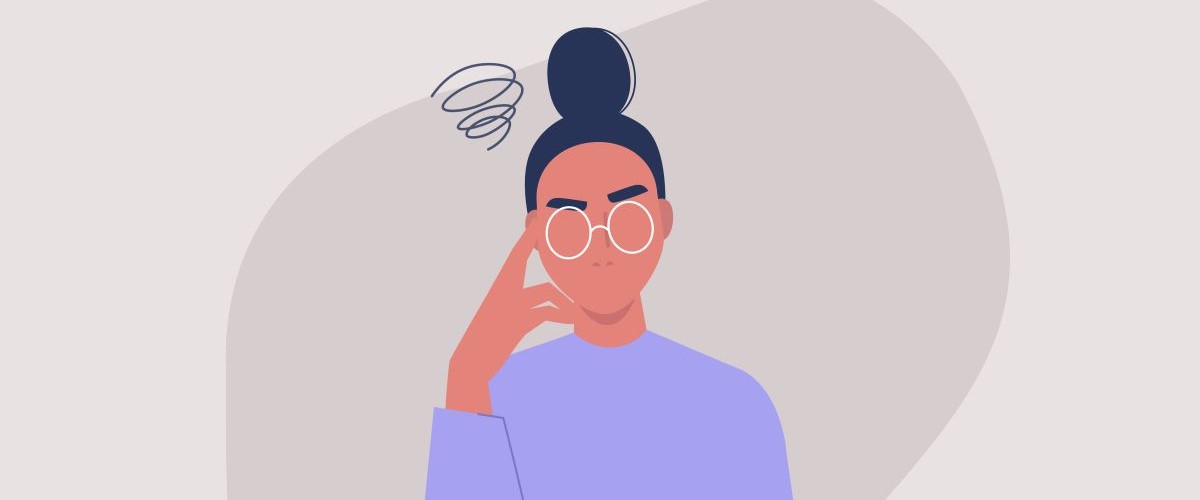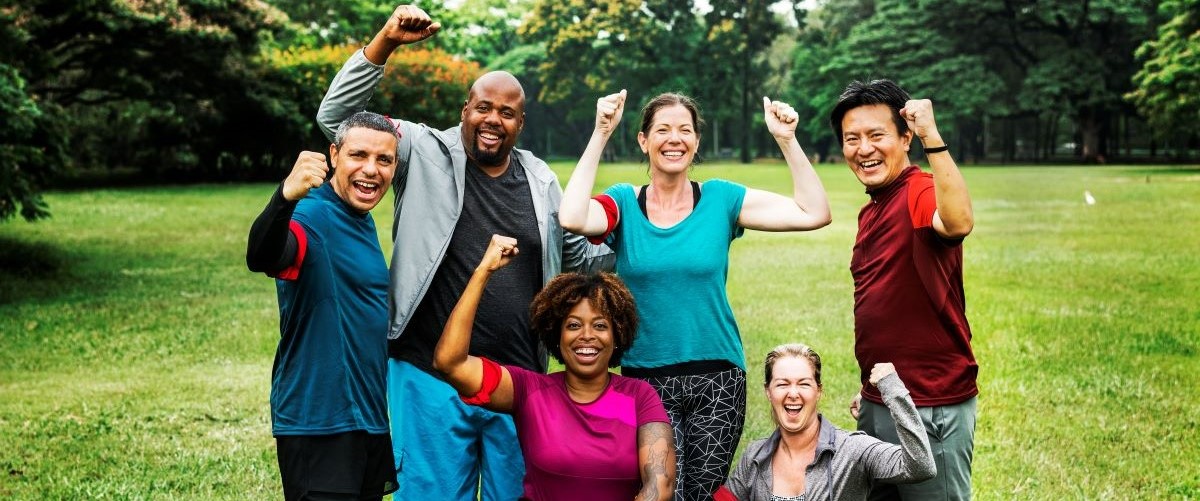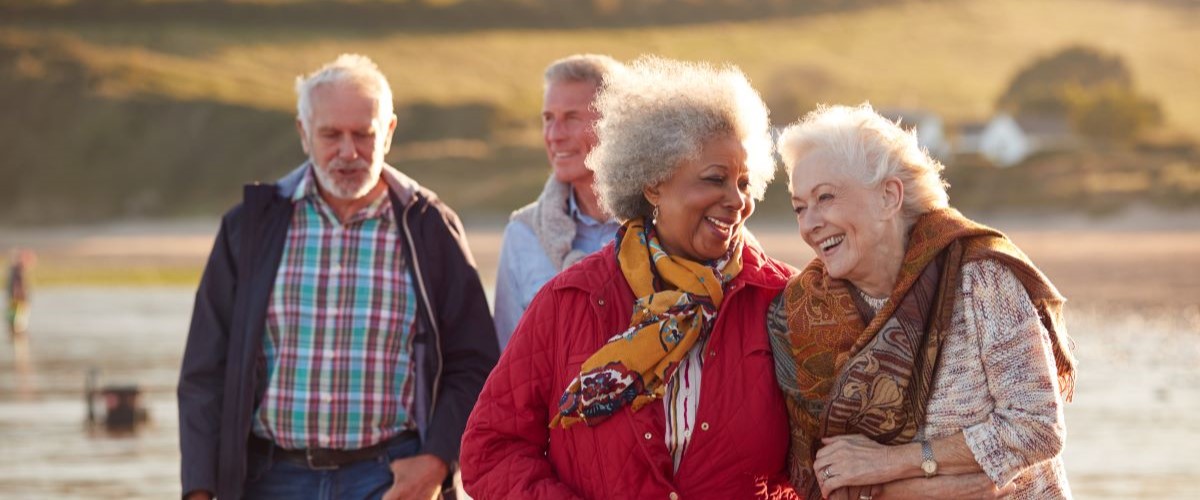Do yourself a favour! The truth behind why we make unhealthy choices
Ever wondered why it's hard to be healthy? Chances are it's to do with behavioural economics. Vitality explores the science behind our choices

If a stranger stopped you in the street and asked you to look after their pet, would you do it? As they are someone you have no connection to, you might think twice.
But what would you do if it was your future self that asked you... would you then?
According to behavioural economist Professor Hal Hershfield, UCLA, we see our self in the future as a “different person entirely” because of an emotional disconnect.
He knows this because a study of neuroimaging revealed that when we are asked to think about our future self, our brain activity looks like we’re thinking about another person.
Essentially, this is one of the primary reasons why we find it difficult to make healthy choices in the present that are only going benefit ourselves later down the line.
So, how do we make our current selves care about our self in the future, so that we don’t need to ask someone else to look after our pet, even if it is Stanley (the Vitality dachshund)?
The science behind our behaviour
Behavioural science is the study of human behaviours, including the way that we think, feel and behave.
Ever heard of the phrase ‘flocking like sheep’? This is called herding behaviour, whereby humans gather into groups without giving much thought as to why or the way that we are behaving.
And this type of study is hugely important to our lifestyles, as our behaviour has a major impact on our long-term health.
Almost half (43%) of disease globally is preventable, data suggests, and almost 90% of this is associated with lifestyle choices alone, such as what we eat and a lack of physical activity. When it comes to ensuring we live as many years in good health as possible, the choices we make today can make a significant difference.
By understanding the laws of behavioural economics, though, we can set ourselves realistic goals (or habit stacking) - supported by incentives and rewards for healthy behaviour – and be more likely to achieve the intentions we set ourselves.
Rewarding the good
Without a crystal ball, it’s impossible to know – or possibly even think about – the state of our health in the future as we get “swept up” in the present, as Professor Hal explained in a recent interview with The Times.
Speaking to Vitality, he says: “We need to make our future self vivid in a way that makes people start to think about and relate to their future self.”
Instead, however, instant gratification feels more rewarding, especially because, as humans, we don’t spend a lot of time worrying about getting ill or dying – a mindset behavioural economists call ‘optimism bias’.
 And without access to some futuristic Google goggles that predict our crows’ feet and smile lines, it’s hard to imagine seeing ourselves in the future.
And without access to some futuristic Google goggles that predict our crows’ feet and smile lines, it’s hard to imagine seeing ourselves in the future.
Another element of behavioural economics is known as ‘hyperbolic discounting’ – or our innate desire to choose immediate rewards over rewards that might come in the future.
Dr Katie Tryon, Director of Health Strategy at Vitality, says that hyperbolic discounting is a very real challenge when it comes to meaningfully sustaining behaviour change.
“If you can’t imagine being 60 years’ old and it feels really far away, then trying to get healthier now to safeguard that point feels probably quite odd,” she says.
“If we could effectively get people into the minds and bodies of their future selves, maybe in a VR headset [or Google goggles], then maybe we could change people’s views on what it would feel like.”
She adds: “There is this real challenge of needing a reward upfront for good habits, otherwise, why would some people bother?”
This is why Vitality data reveals that a small reward – such as earning a Caffè Nero coffee or food discount for an achievable physical activity goal – is an effective way to illicit healthy behaviour.
Another example of this is how the Vitality Programme, the world’s largest behaviour change programme linked to insurance, has been (partly) built around a cognitive bias referred to as ‘loss aversion’, whereby we are twice as likely to not want to lose something than to gain something, as seen with its associated Apple Watch reward (pictured below).
Through this, members are motivated by the fact that they will need to pay more towards their purchase if they don’t earn activity points each month. This makes them more incentivised to stay active, and therefore stand a better chance of being healthy.
Maintaining a healthy habit
Have you ever set yourself a health or fitness challenge? Completing a 5k, stopping smoking, eating your 5 a day, or getting a set amount of exercise in every week? The chances are you’ve probably set yourself one in the past. And if you ended up abandoning any of them, you’re not alone.
Around 30 million Brits set New Year’s resolutions at the start of 2023, but according to research, two thirds of us will give up with our intention in the first month (2). And one of the many reasons for this is due to the unrealistic goals we set ourselves – and this is also down to ‘optimism bias’.
Studies have shown that as humans we are generally very optimistic, to the point where we overestimate our ability to take on a challenge, and this is something we apply to our health. “Optimism bias is driven by, essentially, rose-tinted glasses,” says Dr Katie.
“Part of [challenging] that is being realistic about the results you’re expecting to see,” she says. “If you go running for a week, you’re not going to lose that much weight, but you might feel a bit more energetic, or your mental wellbeing might improve.”
Dr Katie says that a major challenge with optimism bias is getting people to understand risks associated with unhealthy behaviour.
“As a doctor, I’ve had way too many cases where people say their granny has smoked all their life and they’re fine; and that’s true, many have, but statistically, you’re more likely to get a nasty diagnosis,” she explains.
“Not everybody who smokes will die of lung cancer, but statistically you are more likely to and that’s why it’s a risk.”
Futureproofing your health
So, how do we make meaningful behaviour change that benefits us beyond the here and now?
“You can’t change overnight,” warns Dr Katie, but that’s not to say making long-term, sustainable changes isn’t possible.
She says that taking on one healthy challenge at a time is the best way to make changes. “What we have seen from our Programme is that focusing on the one action that can have the greatest impact on health (Next Best Action) rather than a range of actions has a huge impact,” she notes.
 Vitality’s Next Best Action is an approach that uses data science to understand our members’ health risks and provide one action that can help them overcome this. For example, stopping smoking or losing weight.
Vitality’s Next Best Action is an approach that uses data science to understand our members’ health risks and provide one action that can help them overcome this. For example, stopping smoking or losing weight.
In addition to setting ourselves goals that are much more achievable, Dr Katie says that incentives are a key driver for developing long-term healthy habits and sustaining them.
“Rewarding people for making the change upfront while habits are forming is critical as the benefit on health feels a long way away,” she adds.
By doing so, our present self is not just rewarded – our future self is too. And at a time our country is not getting any healthier, there’s never been a better time for society as a whole to lead healthier, happier lives. We often just need a nudge in the right direction.
You automatically get access to the Vitality Programme when you take out a plan with us. Members can start earning points immediately and accessing discounts from our partners including Caffè Nero and Mindful Chef.
These are not just things to enjoy, they also help ensure we benefit physically, mentally and financially too.
Find out more by logging into Member Zone.
Recent articles

Feeling lonely? 4 ways to combat loneliness this season
For all the fun and frolics of the festive season, for many it can bring an equal amount of heartache. So, why not lift your - or someone else’s - spirits this time of year with these simple tips?

The way to avoid festive burnout? Just say ‘no’
For all of its fun, the festive period can be incredibly stressful too. Hoping to escape burnout this holiday season? Try saying ‘no’, writes Jennifer Wallis

What’s holding women back from getting active this winter?
Less than one in four women hit the recommended weekly exercise guidance – why? We asked women’s personal trainer and founder of LDN MUMS FITNESS, Sarah Campus

